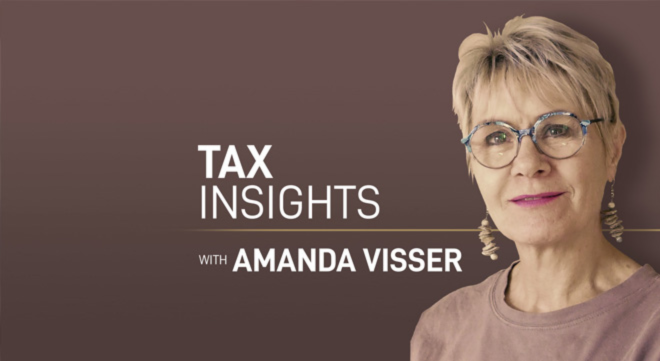Finance Minister Enoch Godongwana will be scraping a very empty barrel this year when he presents his Budget in Parliament on 21 February. The revised tax revenue collection for 2023 is down almost R57 billion from February last year.
There are ominous warnings that the South African Revenue Service will struggle to meet its revised target of R1.73 trillion before the end of the current tax year. And Godongwana announced in October the need to raise an additional R15bn to plug the holes for the 2024/25 tax year.
Tertius Troost, senior tax partner at Mazars, says it will be relatively easy to collect the amount if no relief is provided to account for inflation. He suspects National Treasury will be able to “save” between R16bn and R18bn if no inflation-linked adjustments are made to the tax brackets.
“I do believe, given that it is an election year, that government will provide some relief for the lower-income groups.” Last year, government provided relief of R15.7bn.
Nwabisa Ruka, associate director for business tax at Deloitte, says the government will receive an increase in Pay-As-You-Earn (PAYE) collections when the inflationary increase in taxpayers’ salaries is not offset by an inflationary increase in the PAYE tax brackets.
This increase in tax revenue can thus be achieved without increasing the actual tax rates.
Higher tax rates not viable
“Rising prices and interest rates have led to the reduction of taxpayers’ disposable income in real terms, thus an increase in personal income tax rates is not viable in the current economic climate,” says Ruka.
Although an increase in the rate of value-added tax (VAT) could bring in much-needed revenue, this will not happen in an election year.
Troost is a strong proponent of a tiered VAT system, with a rate as high as 20% for goods and services consumed by the more affluent. This can be coupled with a 10% rate on goods and services consumed by less-affluent taxpayers and a zero rate on essential goods and services. But this would require a change to the VAT administration system.
“There is little enthusiasm to go that route. This will be a better revenue source without negatively impacting on the poorer population,” says Troost.
Economic outlook
The economic outlook for the 2024 tax year is not rosy. The need for progress with structural economic reforms, particularly in the electricity and logistics sectors, is now more urgent than ever, says Hannah Marais, Deloitte’s acting chief economist.
“The economic costs of failure and inefficiency in these sectors have mounted over the past year, partly due to lack of investment but also due to mismanagement, corruption, and even theft,” she writes in a Deloitte pre-Budget publication.
Old Mutual Wealth’s chief investment strategist, Izak Odendaal, says the economy and tax revenue are still growing, just not at the rate the country needs. The economy is expected to grow by about 1% this year.
“We are seeing some reforms taking shape, although it is slow and frustrating.”
Operation Vulindlela, the joint initiative of the Presidency and National Treasury to accelerate the implementation of structural reforms and support economic, is making progress, adds Odendaal.
Eskom’s unbundling is ongoing, and there have been drastic improvements in electricity generation because of private sector involvement, although it still does not have a direct impact on loadshedding.
Difficult election
George Tshesane, government and public sector leader at Deloitte, says it may turn out to be a particularly difficult election for the ANC, with the possibility of coalitions at the national level.
“We’ve seen how messy that is. We are paying the school fees for that at the moment,” says Tshesane.
This raises concerns about policy uncertainty and the possibility that coalitions could exacerbate the problem. He anticipates a lot of horse-trading between the parties within coalitions and delays given the misalignment on policy within the ANC, as well as misalignment in coalition partnerships.
“All of these issues are potentially going to be brought to bear. This election is really going to be the overriding theme of this year, and it may find its way into every single decision.”
Grants and more grants
Troost says a big elephant in the room is the Covid-19 relief grant of R350 a month. The grant was introduced as a temporary measure to aid battling households during the pandemic, but as predicted, it has remained.
Godongwana is expected to extend the grant again beyond the end of March this year when it was supposed to be phased out.
Odendaal says it can safely be assumed that the relief grant is a permanent item in the Budget. However, its value has been eroded by four years of higher inflation. He believes the grant will remain in its current form and be renamed a basic income grant.
“The reality is that we cannot afford anything more than what we are already spending.”
The passing of the National Health Insurance (NHI) Bill was nothing more than a populist move to gain votes for the ANC. However, there have been few signs in any Budget of a large-scale implementation of NHI, says Odendaal.
Old Mutual will continue to keep an eye out for changes to the tax credits for medical scheme contributions.
Amanda Visser is a freelance journalist who specialises in tax and has written about trade law, competition law, and regulatory issues.
Disclaimer: The views expressed in this article are those of the writer and are not necessarily shared by Moonstone Information Refinery or its sister companies. The information in this article does not constitute financial planning, legal or tax advice that is appropriate to every individual’s needs and circumstances.



